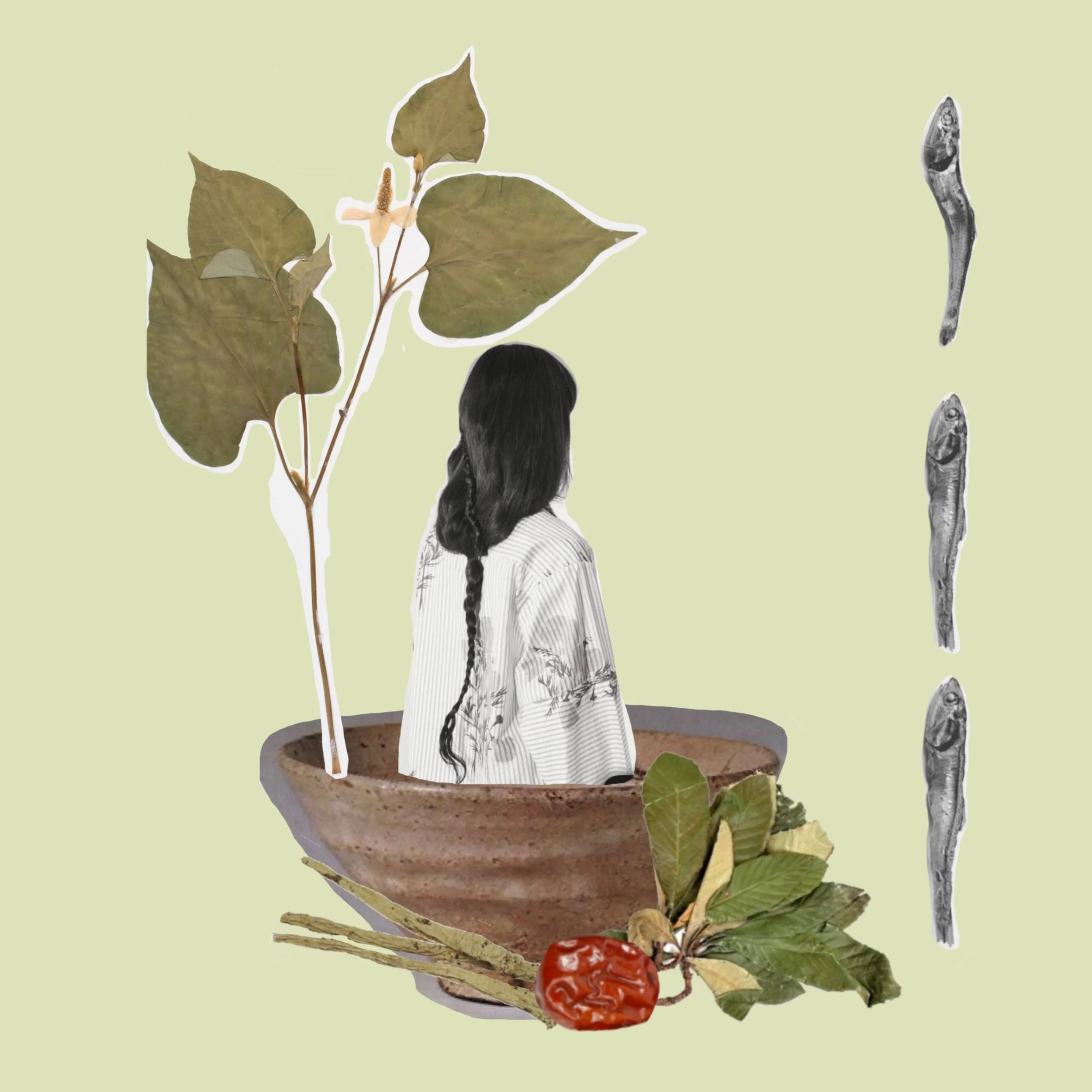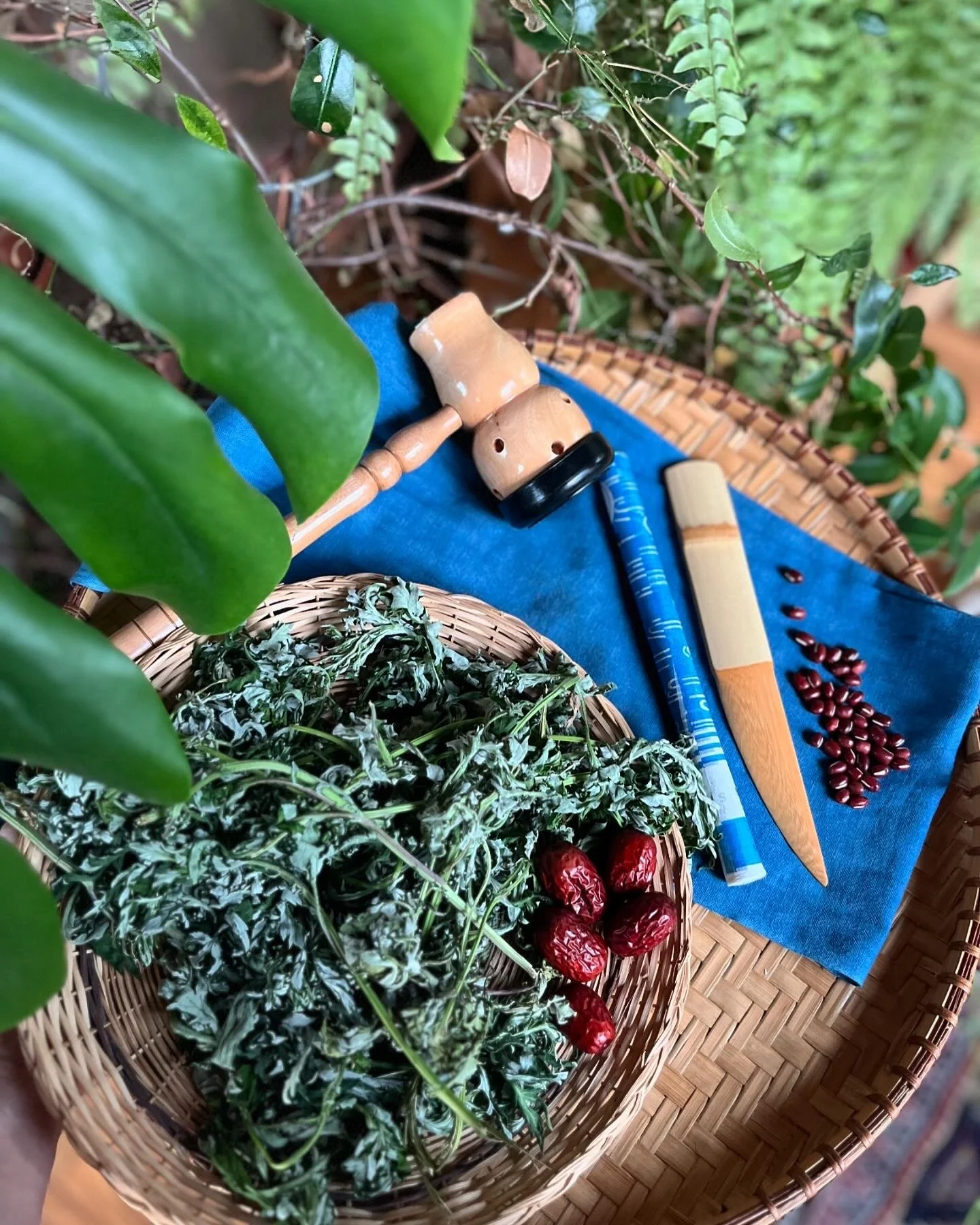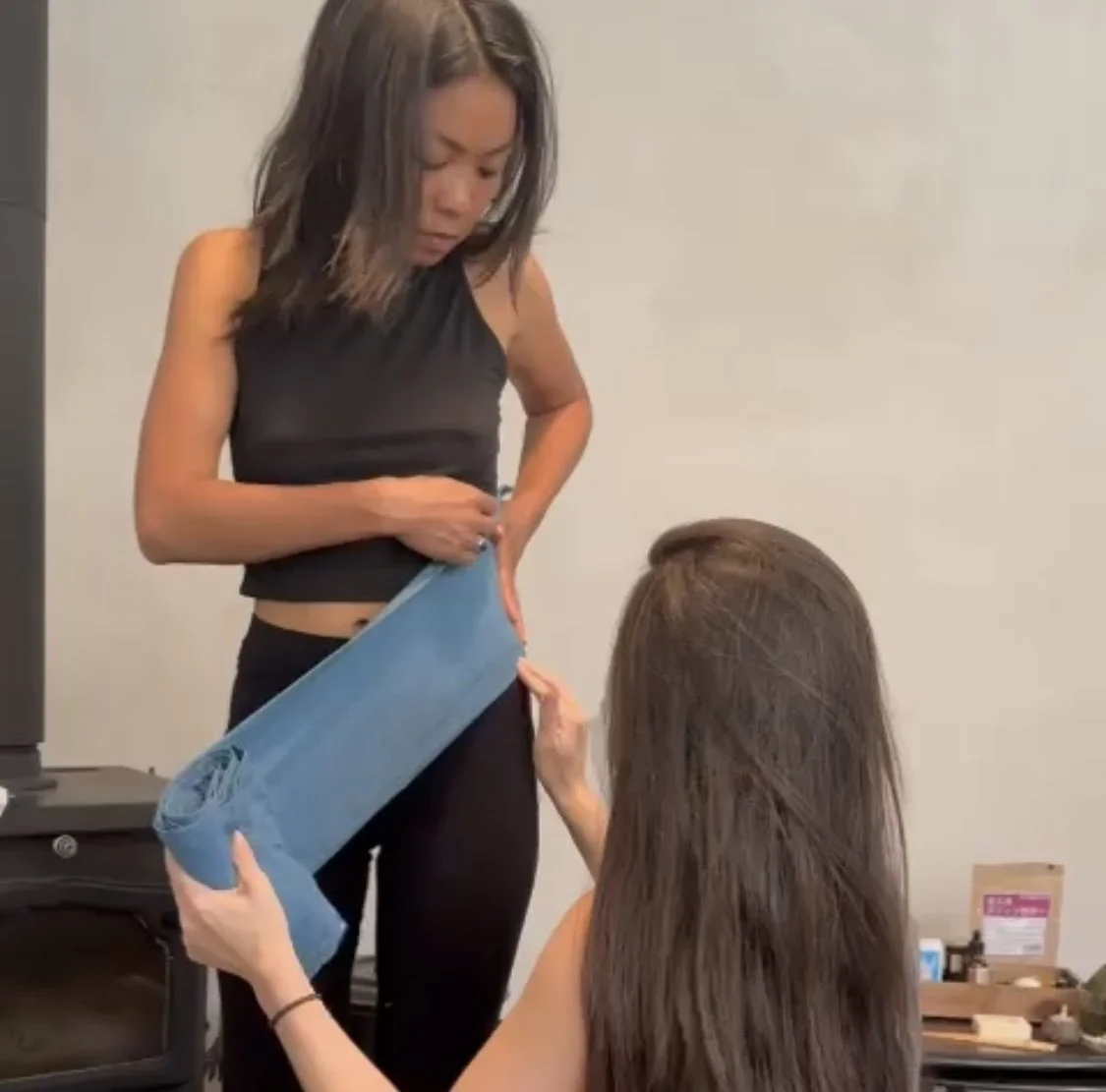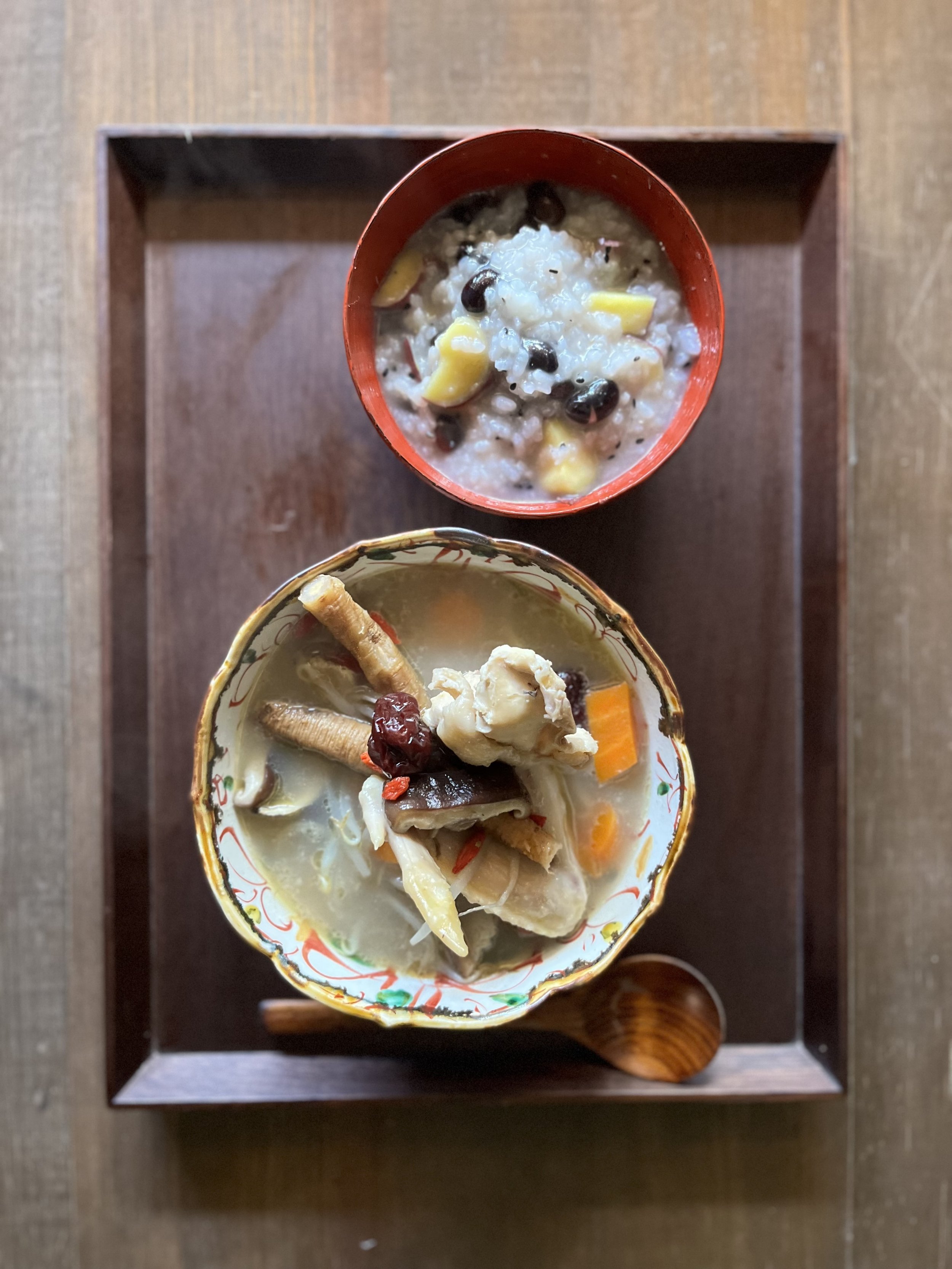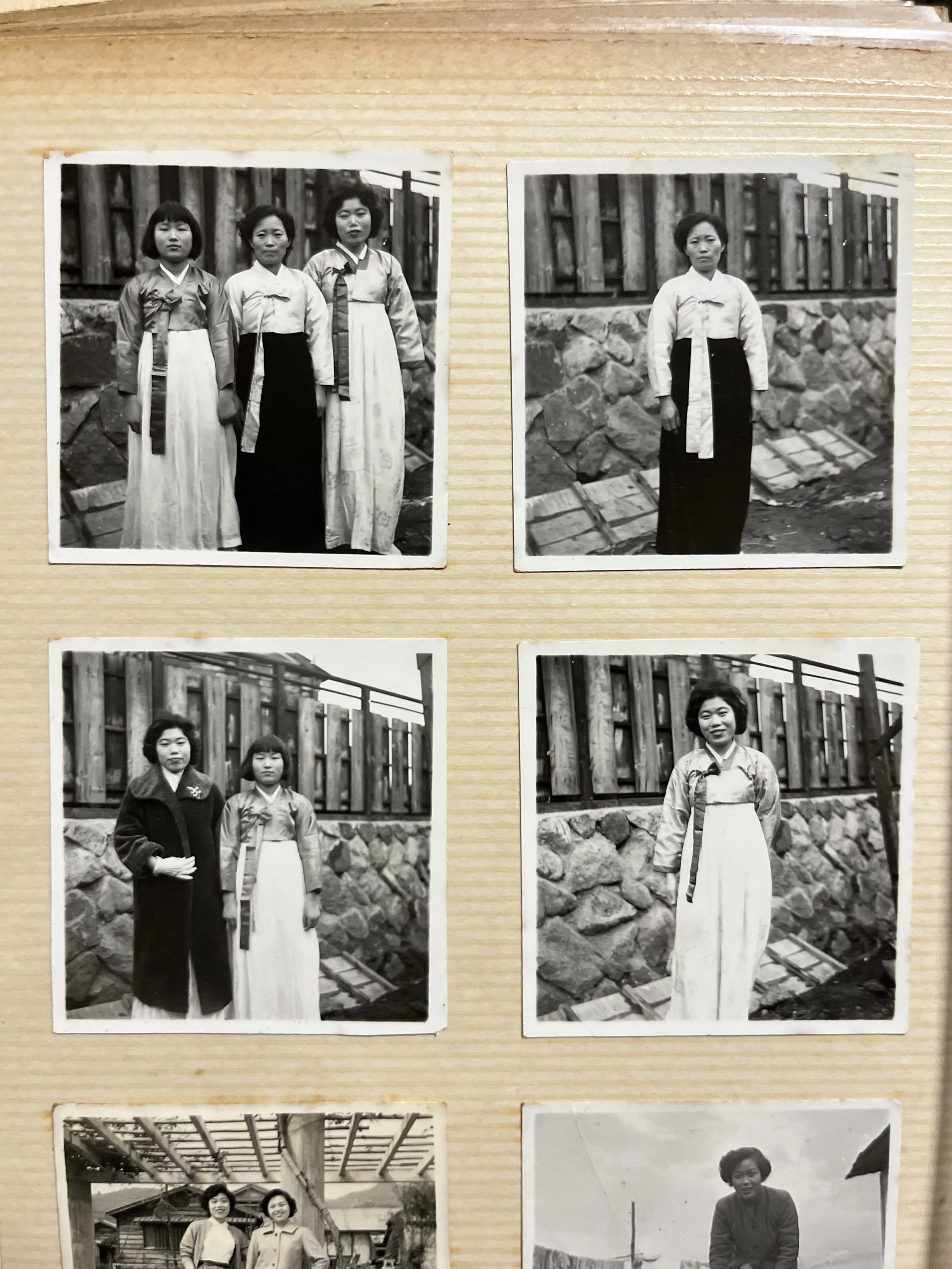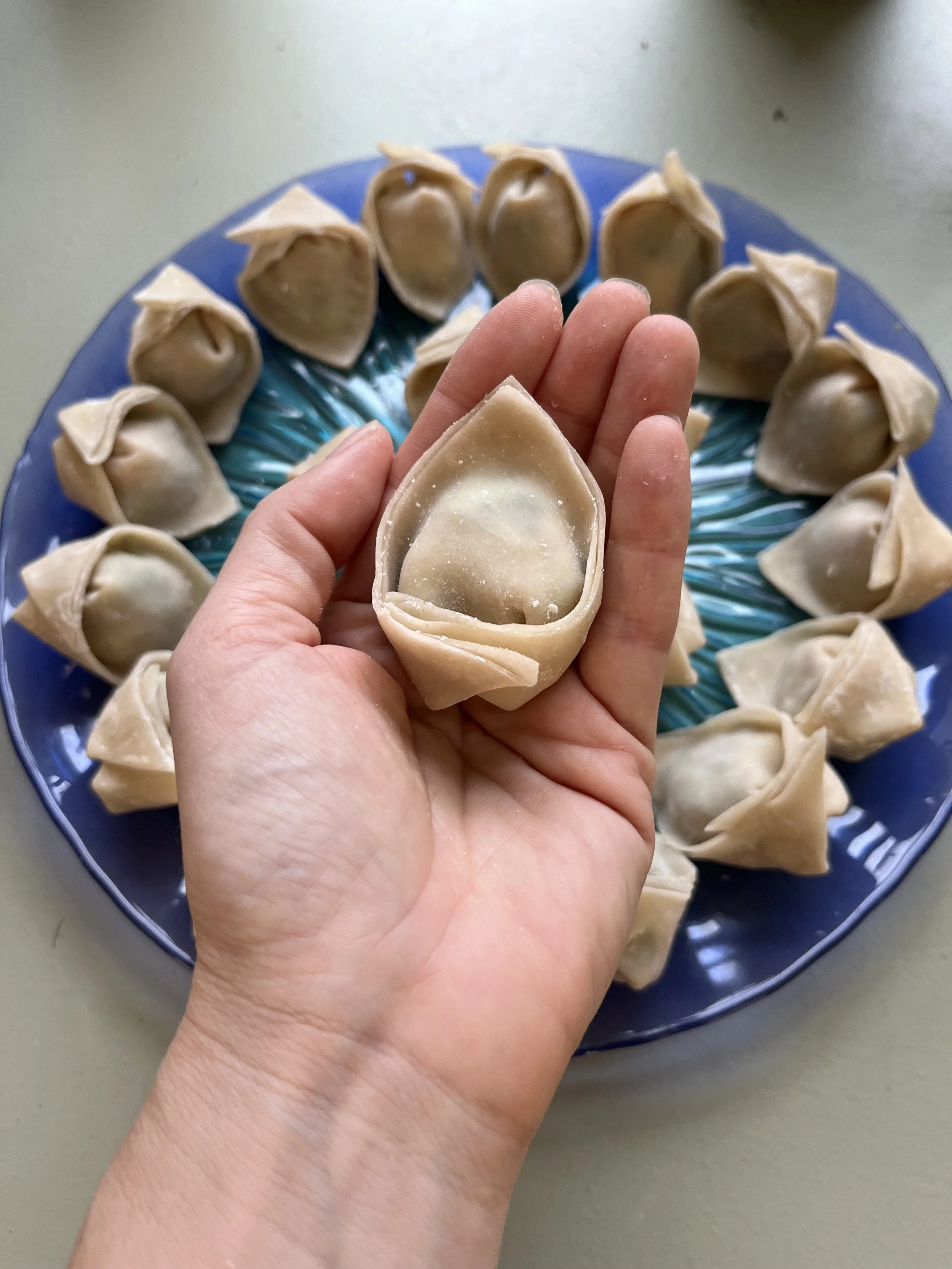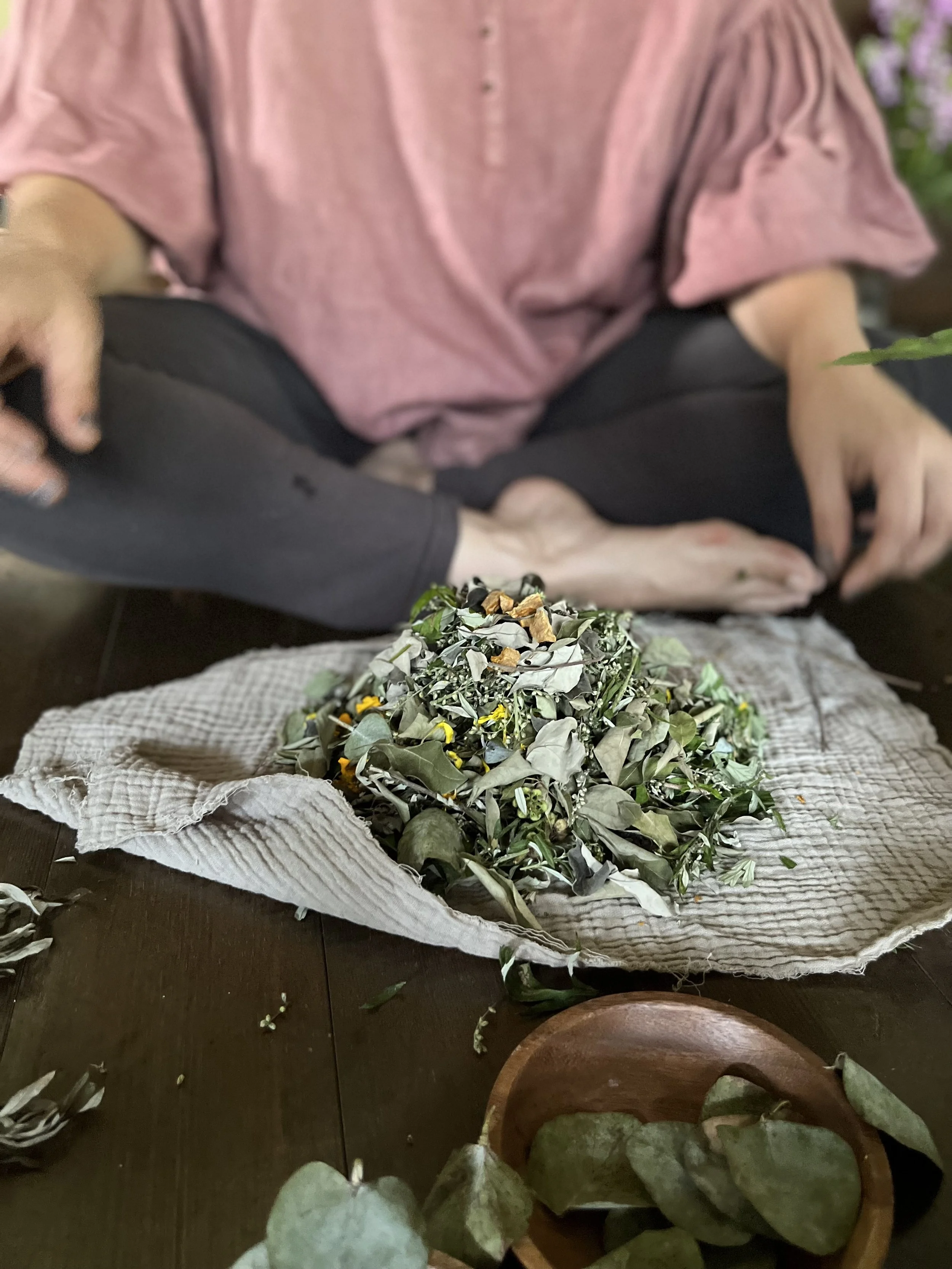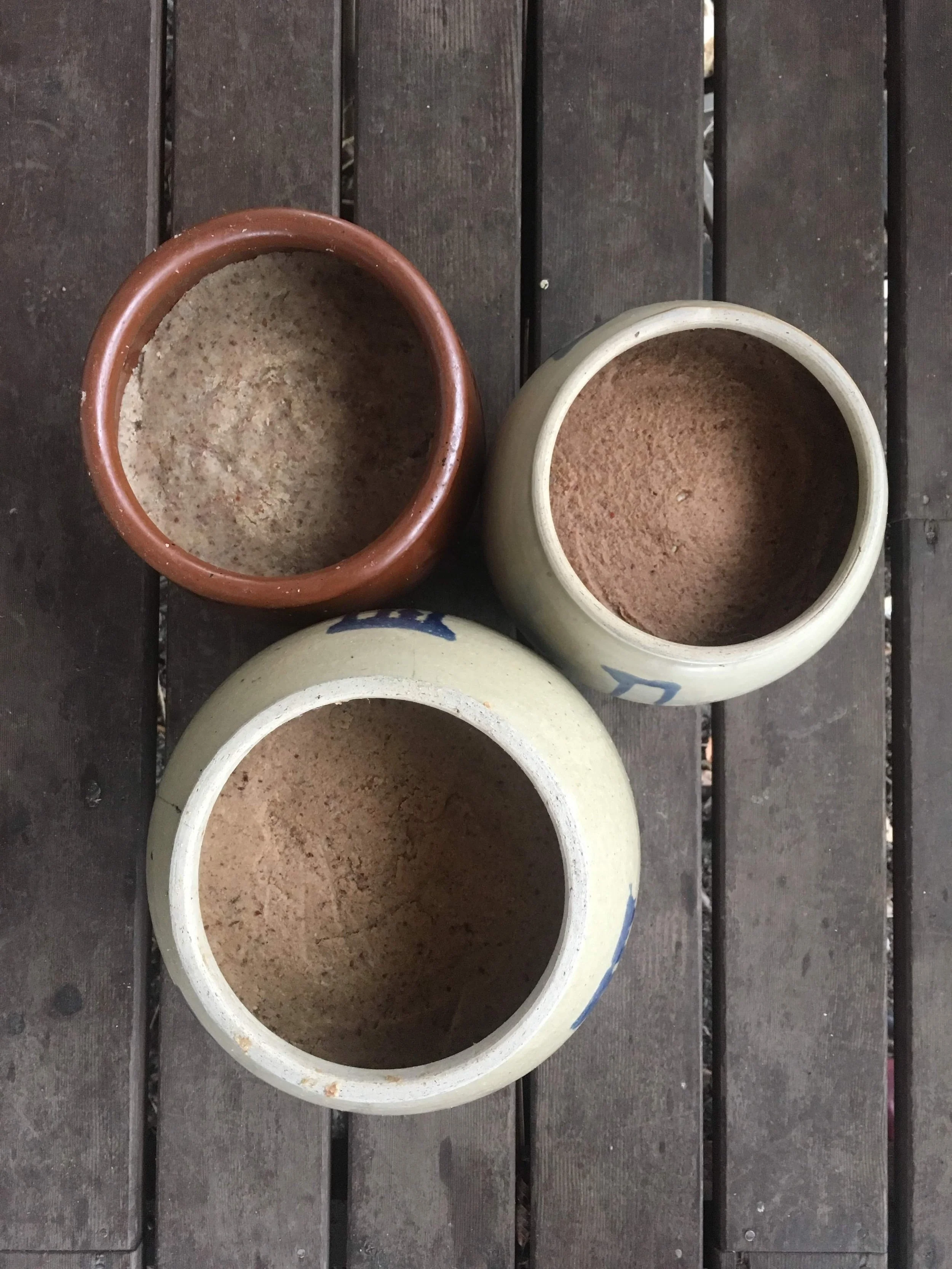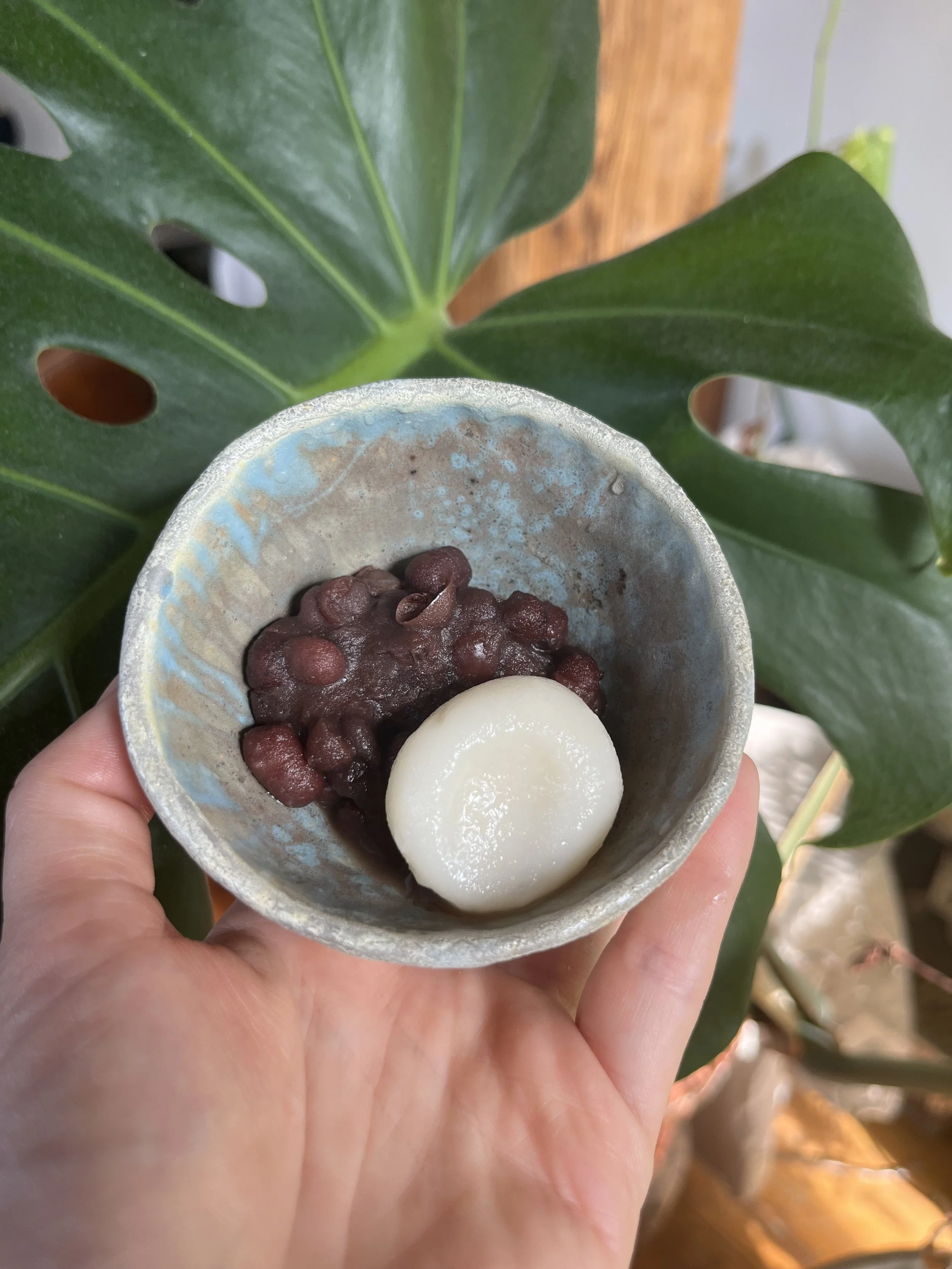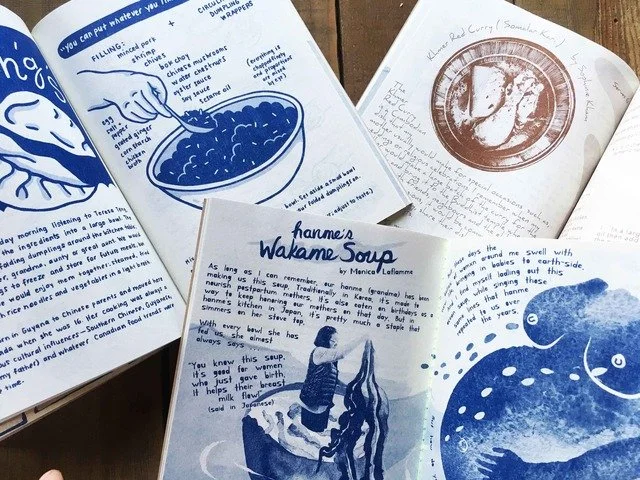Earthen Ways of Tending to
the Mother
East Asian, folk postpartum care practices
from the hearth and the land
And an invitation to drop into your roots
ONLINE 5 CLASS SERIES
In this course, we’ll explore how to tend to mothers through birth and postpartum, as well as general womb care through the framework of East Asian folk medicine.
This offering weaves together:
・Rituals
・Nourishment and traditional foodways
・Body care practices
・Folk remedies and the use of plants
The knowledge shared will be rooted primarily in Japanese and Korean traditions, with some elements from Thai practices.
Through out our time together, you’ll also be invited to explore your own (dis)connection to ancestral roots and the land around you. Through guided self-inquiry, you'll begin cultivating your own tending practices, shaped by your personal origins (lineage, landscape, and lived experience).
This container is part practical knowledge-sharing and part exploration of cultural and diasporic identities.
This course is open to everyone, not just birth workers. Tending to our wombs and caring for mothers are essential skills that belong in the hands of the people - as a living form of community care.
These practices are not just remnants of the past, but seeds for creating ways of care that are rooted, yet relevant and expansive enough to hold our present-day, multicultural realities.
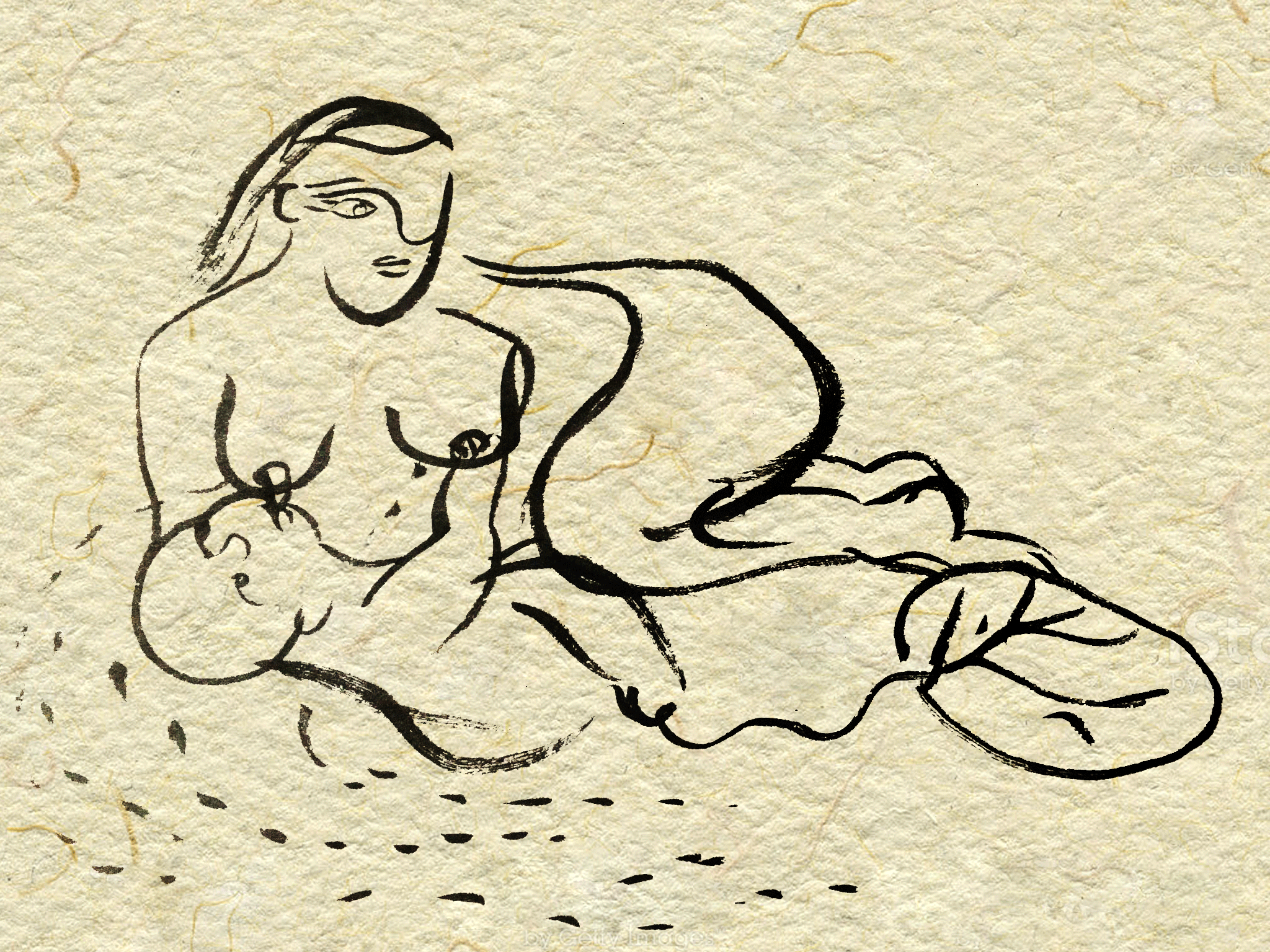
DATES:
Please leave your contact below to be notified when this course will be offered in 2026
What we will explore:
WEEK 1 - HEARTH & RITUAL
Hearth altar making
Symbolism & kitchen deities
Rituals for before, during & after birth
Protective talismans and indigo
Cord cutting, placenta & umbilical care traditions
Greeting life / grieving loss
WEEK 2 - FOOD & NOURISHMENT
Energetics of food and eating with the seasons
Traditional postpartum meals & recipes of Japan & Korea
Food processing wisdom & technologies
Healing relationship to sacred/staple foods
Writing your family recipes/stories into intention
WEEK 3 - HEALING WITH MICROBES
Miso-making with your sacred/staple grain or legume (WORKSHOP)
WEEK 4 - WEAVING BODY & CARE
Eastern ways of relating to the body
Traditional clothing and womb health
Pelvic wrapping with the sarashi cloth
WEEK 5 - PLANTS & FOLK REMEDIES
Medicinal plants of East Asia
Tending to body with the elements
Tending tools (moxa, thermie and its different holders)
Tending ways (medicinal baths, bathing culture, steaming, compresses
Thai herbal compress ball making (WORKSHOP)
What to expect:
Because this course includes a self-inquiry component for tracing your ancestral roots, you’ll receive prompts and exercises to explore on your own time before each class.
There will also be some workshop-style activities (such as miso-making) that will require you to prepare a few materials in advance.
We will individually unearth a family recipe/story, then bring them together into a collective recipe book.
Additionally, we’ll have a Whatsapp group to exchange information and connect during this time.
I have found these courses to be more meaningful when we can share the experience together in real time, rather than just watching the recordings later - though I completely understand that time difference and life responsibilities sometimes make this necessary!
My wish is for active participation whenever possible in this co-creation.
Thank you!
I am a Zainichi Korean / Canadian based in rural Japan. I returned to my birth land about eight years ago with the hope of reconnecting with my Asian roots. Guided by a message from a dream, I began working with foodways as a way to explore my personal origins. This journey led me from farming and homesteading to traditional fermentation, folk remedies, and eventually to birthwork and postpartum care. My knowledge is primarily rooted in folk East Asian womb-tending practices, which I have further expanded through my studies in Thailand.
Some of my past teachers have been Kim Tosun (my grandmother), the local aunties, the local birth workers, Homprang Chaleekanha, Rachelle Seliga, Raeanne Madison, and many more who have shaped and influenced me. But perhaps most simply - and consistently - it has been the land itself that continues to teach me.
I am deeply inspired by slower, hands-on ways of living - not only because it is vital to know how to create and tend with our own hands, but also because it offers a way to reimagine and shape new ways of being with each other and the (natural) world today.
Monica Laflamme
-
This is open to anyone, because caring for wombs is community care. There have been past participants that were artists, nutritionists, farmers, school teachers, textile artist, simply a human with a pregnant sister / neighbor etc.
-
Not at all.
The knowledge shared in this course is relevant to anyone interested, regardless of where you live or your cultural background. Many of the recipes and plants I discuss can be sourced or adapted to your local region.
While I teach from an East Asian lens, there will be an invitation to explore your own roots (regardless of how connected you may be to them).
Together, we’ll weave stories of multi-cultural, diasporic identities, and the many complex layers of being human today - and how all of this connects to our health and sense of wholeness.
-
Many of these tending practices can be applied to general womb care and self-care.
-
Yes, but it is highly encouraged to join in real time whenever possible!
-
There are 2 partial scholarships available. Please write to kamadostories@gmail.com (before Oct 31st) and share about yourself and how this can help support you and your community.
